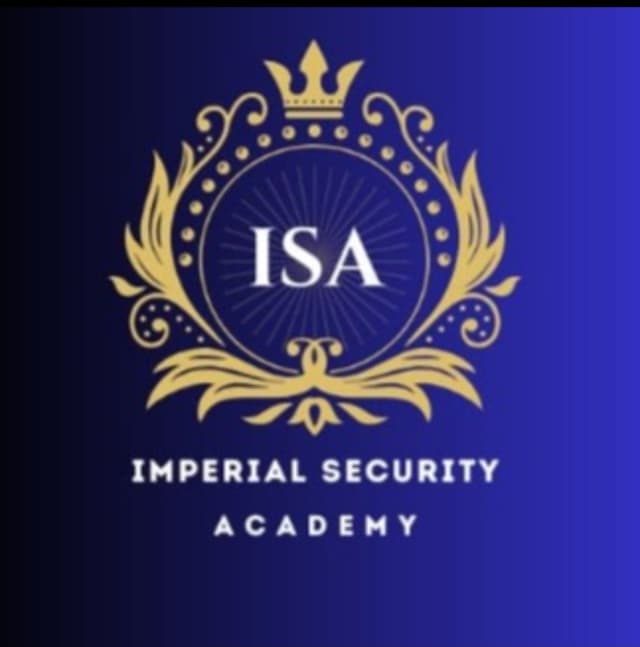Training Courses by Imperial Security Academy on Hurak
Imperial
Expert SIA Security & First Aid Training – Book Online with Hurak
About us
Imperial Security Academy (ISA) is a London-based training provider specialising in SIA-approved security and first aid courses. With over 35 years of combined experience, ISA offers comprehensive programs designed to equip learners with essential skills for the security industry. Their courses include Door Supervisor Training, SIA Top-up Training, and First Aid Certification, all tailored to meet current industry standards and regulations.
You can book Imperial Security Academy’s accredited courses directly through Hurak.

RESONABLE ADJUSTMENT POLICY
Purpose:
The Reasonable Adjustment Policy is designed to ensure that all students, including
those with disabilities, have equal access to education and training opportunities
provided by the Imperial Security Academy. This policy aligns with the guidelines set
forth by the Security Industry Authority (SIA) for training and licensing of security
personnel.
Policy Outline:
Legal Framework:
The policy is based on:
The Equality Act 2010
The Disability Discrimination Act 1995
SIA guidelines on training and licensing for individuals with disabilities
Definitions:
Reasonable Adjustment: Modifications or accommodations provided to ensure
that individuals with disabilities can participate fully in the training programs.
Disability: As defined by the Equality Act 2010, a physical or mental impairment
that has a substantial and long-term adverse effect on an individual's ability to
perform normal daily activities.
Eligibility Criteria for Adjustments:
The individual must have a recognized disability as per the Equality Act 2010.
The individual must provide medical or psychological evidence supporting the
need for adjustments.
The requested adjustments must be reasonable and not compromise the
integrity of the training or assessment.
Process for Requesting Adjustments:
Application: The individual must submit a written request for reasonable
adjustments at the time of application or enrollment, detailing the nature of the
disability and the specific adjustments required.
Supporting Documentation: The request must be accompanied by appropriate
medical or psychological documentation.
Review: The request will be reviewed by the Academy’s Disability Support Officer
in consultation with the course trainers and, if necessary, external experts.
Decision: A decision will be made within 10 working days, and the individual will
be informed of the outcome in writing.
Types of Reasonable Adjustments:
Physical Environment: Modifications to facilities, such as ramps, accessible
restrooms, and seating arrangements.
Learning Materials: Provision of materials in accessible formats (e.g., Braille,
large print, audio).
Assessment Methods: Alternative assessment methods, such as extended time,
oral examinations, or the use of assistive technology.
Support Services: Provision of sign language interpreters, note-takers, or
personal assistants during training sessions.
Responsibilities:
Academy: Ensure all facilities and materials are accessible and provide
reasonable adjustments as required.
Trainers: Implement adjustments in training sessions and assessments as
specified.
Students: Communicate their needs clearly and provide necessary
documentation in a timely manner.
Confidentiality:
All information regarding an individual's disability and the adjustments made will be
kept confidential and only shared with relevant staff on a need-to-know basis.
SIA Rules for Disabled People
The SIA has specific guidelines to ensure that individuals with disabilities are not
discriminated against in the training and licensing process. These include:
Eligibility:
Individuals with disabilities are eligible to apply for SIA licenses provided they
meet all other criteria.
Adjustments should not compromise the security or safety requirements of the
role.
Training Providers’ Responsibilities:
Training providers must make reasonable adjustments to accommodate disabled
individuals.
Adjustments may include modified training materials, assessment methods, and
physical accommodations.
Assessment:
Assessments must be fair and valid, ensuring that they accurately measure the
individual's abilities without being unfairly influenced by their disability.
Adjustments such as additional time, alternative formats, and assistive
technologies should be considered.
Arrangements for Disabled Individuals
Facilities:
Accessible classrooms, restrooms, and common areas.
Reserved parking spaces close to training facilities.
Support Services:
Availability of personal assistants, sign language interpreters, and note-takers.
Use of assistive technologies such as screen readers, magnifiers, and speech-totext software.
Communication:
Regular consultation with disabled students to understand their needs and
preferences.
Provision of information in accessible formats.
Monitoring and Review:
Continuous monitoring of the effectiveness of adjustments.
Annual review of the policy to ensure it remains up-to-date and effective.
Conclusion
The Imperial Security Academy is committed to providing an inclusive learning
environment where all students, including those with disabilities, can achieve their full
potential. By implementing reasonable adjustments and following SIA guidelines, the
Academy ensures that its training programs are accessible to everyone.
Signed : Paul Launder
Centre manager: Paul Launder
Date updated: March 2024
Next review: March 2025
